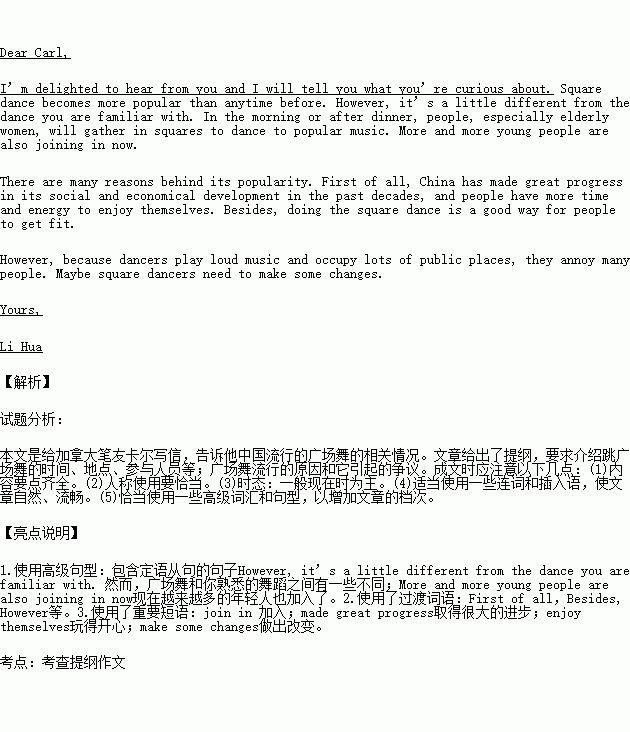题目内容
书面表达
假设你是李华,你的加拿大笔友卡尔想了解中国流行的广场舞(square dance)的相关情况。请你用英语给他写封回信,要点包括:
1.跳广场舞的时间、地点、参与人员等;
2.广场舞流行的原因;
3.广场舞引起的争议。
注意:
1.词数100字左右;
2.开头和结尾已经写出,不计入总词数;
3.可以适当增加细节,以使行文连贯。
Dear Carl,
I’m delighted to hear from you and I will tell you what you’re curious about.
_______________________________________________________________________________
_______________________________________________________________________________
_______________________________________________________________________________
_______________________________________________________________________________
_______________________________________________________________________________
_______________________________________________________________________________
_______________________________________________________________________________
_______________________________________________________________________________
_______________________________________________________________________________
_______________________________________________________________________________
Yours,
Li Hua

